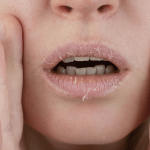Understanding the Need for Detox
Our bodies are remarkable machines, capable of self-cleansing and self-healing. However, just as a car needs regular servicing, our bodies occasionally require a detox to function optimally. Detoxification is the process of removing toxins from the body, which can accumulate due to environmental pollutants, poor dietary choices, and the stresses of daily life. These toxins can manifest as various symptoms, such as fatigue, skin irritations, and digestive issues. A detox provides the body with a chance to reset, supporting the natural elimination processes and promoting overall well-being.
The Role of Detox in Menopause
Menopause is a significant transition in a woman’s life, marked by hormonal changes that can affect physical and emotional health. The decline in estrogen levels can lead to symptoms such as hot flashes, weight gain, and mood swings. Detox during menopause can be particularly beneficial as it helps the body to adjust to these hormonal shifts. By supporting liver function and improving digestion, detoxification can alleviate some menopausal symptoms, balance hormone levels, and enhance vitality. It’s a way of nurturing the body during a time when it’s undergoing profound changes.
Precautions and Considerations
While detox can offer numerous health benefits, it’s essential to approach it with caution, especially during menopause. Not all detox methods are suitable for everyone, and some can be more harmful than helpful. It’s crucial to listen to your body and consider any pre-existing health conditions. For instance, drastic fasting or extreme diets may exacerbate menopausal symptoms or lead to nutrient deficiencies. Therefore, it’s advisable to opt for gentle, nourishing detox methods that focus on whole foods and adequate hydration. Consulting with healthcare professionals before embarking on a detox program is also recommended to ensure it’s tailored to your individual needs and health status.
Dietary Adjustments for Detox
Choosing Organic Foods
During menopause, the body’s need for a clean and toxin-free diet becomes more pronounced. Organic foods are grown without the use of synthetic pesticides and fertilizers, offering a purer form of nutrition. Particularly for fruits and vegetables where the skin is consumed, such as apples, tomatoes, and berries, opting for organic can significantly reduce the intake of harmful substances. Transitioning to organic foods can be a cornerstone in a detox plan, helping to minimize the body’s toxin load during a period when hormonal changes are already creating significant shifts.
Hydration and Its Detoxifying Effects
Water is the essence of detoxification. It facilitates the removal of waste products and supports all bodily functions. During menopause, increasing water intake can help manage symptoms such as bloating and aid in maintaining a healthy weight. Water helps to flush out toxins through the kidneys and keeps the digestive system moving, reducing the likelihood of constipation. Aim to drink at least 8-10 glasses of water daily, and consider starting the day with a glass of warm water with lemon to kickstart digestion and liver function.
Incorporating Greens and Seaweeds
Greens are detox powerhouses. Leafy greens like spinach, kale, and chard are rich in chlorophyll, which can bind to toxins and help remove them from the body. Seaweeds, such as spirulina and chlorella, are also beneficial due to their high nutrient content and ability to bind to heavy metals, aiding in their excretion. Including a variety of greens in salads, smoothies, and juices can provide essential vitamins and minerals while supporting the body’s natural detoxification processes.
The Importance of Fiber
Fiber plays a critical role in detoxification. It helps to keep the digestive tract moving, preventing constipation and allowing for the proper excretion of toxins through stool. Foods high in fiber, such as fruits, vegetables, legumes, and whole grains, should be a staple in a detox diet. Fiber-rich foods not only aid in elimination but also help to regulate blood sugar levels and support a healthy gut microbiome, which is crucial for overall health and well-being during menopause.
By the way, something for you, a little gift!!!
I am just in the middle of publishing my book. It’s about How women can balance their hormones. One part is about food and diet, of course.
Follow this link and enter your email.
I will send you this part of the book for free once the book is published. It has many concrete, practical tips and recipes and will help you feel better during menopause or times of Big hormonal fluctuations.
Annette, Damiva Lead for Health & Wellness

Nutritional Support for Detox
Boosting Vitamin C Intake
Vitamin C is a potent antioxidant that plays a crucial role in detoxification, particularly during menopause. It aids in the production of glutathione, a compound that supports the liver in eliminating toxins. To enhance your vitamin C intake, consider starting your day with a glass of water with freshly squeezed lemon. This simple habit not only hydrates but also provides a vitamin C boost. Additionally, incorporate vitamin C-rich foods into your diet, such as oranges, strawberries, bell peppers, and kiwi. These foods not only support detoxification but also contribute to overall health and vitality during menopause.
Herbal and Green Teas as Coffee Alternatives
While the occasional cup of coffee may be comforting, replacing it with herbal and green teas can be beneficial for detoxification. Herbal teas like dandelion root, burdock, and milk thistle are known for their liver-cleansing properties. Chamomile tea, aside from aiding sleep, can assist in digestion. Green tea, rich in natural antioxidants, offers a gentle caffeine boost and supports the body’s natural detoxification processes. By choosing these teas over coffee, you can enjoy a warm, soothing beverage while nurturing your body’s detox pathways.
The Role of Probiotics in Detoxification
Probiotics, the ‘good bacteria’ found in the gut, are essential for maintaining a healthy digestive system, which is vital for effective detoxification. They help to balance the gut microbiome and can aid in the elimination of harmful bacteria and toxins. During menopause, incorporating probiotic-rich foods such as yogurt, kefir, and fermented vegetables can support gut health and detoxification. If dietary sources are insufficient, probiotic supplements may be considered. Always consult with a healthcare professional before starting any new supplement regimen, especially during menopause.
Remember, while these nutritional strategies can support detoxification during menopause, it’s important to approach any detox plan with caution and under the guidance of a healthcare professional, particularly if you have any pre-existing health conditions or are taking medications.
Do you know the three main ways that your body gets in touch with harmful chemicals with everyday products? Knowledge is Power!
The Ultimate Detox Guide will tell you how to lower your exposure to harmful chemicals!

Lifestyle Changes to Enhance Detox
The Benefits of Regular Exercise
Engaging in regular physical activity is a cornerstone of a healthy lifestyle, especially during menopause. Exercise not only helps in managing weight and reducing the risk of chronic diseases but also plays a crucial role in the body’s natural detoxification process. By increasing blood circulation and promoting sweat, exercise helps to flush out toxins through the skin and improve lymphatic system function. Moreover, regular movement can enhance digestion and aid in the elimination of waste products, contributing to a more efficient detox. Aim for at least 150 minutes of moderate aerobic activity or 75 minutes of vigorous activity per week, along with muscle-strengthening exercises on two or more days.
Incorporating Sauna Sessions
Utilizing sauna sessions can be a therapeutic addition to a detox regimen. The heat from a sauna induces sweating, which can help eliminate toxins through the skin. It’s important to stay hydrated before, during, and after sauna use to replenish fluids lost through perspiration. Sauna use should be approached with caution, especially for those with cardiovascular issues or other health concerns, and it’s always wise to consult with a healthcare provider before starting any new detox practice.
Prioritizing Sleep for Recovery
Quality sleep is vital for overall health and is particularly important when detoxifying the body. During sleep, the body’s repair processes go into overdrive, including the removal of toxins and the restoration of cognitive functions. Aim for 7-9 hours of restful sleep per night to support these processes. Establishing a regular sleep routine, creating a comfortable sleep environment, and avoiding stimulants like caffeine in the evening can help improve sleep quality. Remember, a well-rested body is more efficient at detoxification and better equipped to handle the hormonal changes of menopause.
By incorporating these lifestyle changes, you can support your body’s natural detoxification systems and navigate menopause with greater ease and vitality. Regular exercise, sauna sessions, and prioritizing sleep work synergistically to cleanse the body and promote overall well-being.

From unhappy, dry, and sandpaper to silky, smooth and feeling good. That’s Cleo. Cleo is a 100% natural labial balm to moisture and soothe “your other lips”. Cleo is chemical-free, water-free, pH optimized and helps maintain and restore your delicate labial skin’s natural flora. Ideal for daily use or as needed. Get the most silky, lovable lips ever.
Short-term Detox Strategies
Understanding Juice Fasts
Juice fasting, also known as a juice cleanse, is a detoxification strategy that has gained popularity for its potential to quickly reset the body’s digestive system and flush out toxins. The premise of a juice fast is to consume only the liquid extracted from fruits and vegetables, abstaining from solid foods for a period typically ranging from one to several days. Proponents of juice fasting argue that it provides essential vitamins and antioxidants, while giving the digestive system a break from processing solid foods.
However, it’s important to note that while juices can be rich in certain nutrients like vitamin C, they often lack other critical dietary components such as protein, fiber, fats, and sufficient calories. These nutrients are vital for maintaining satiety, energy levels, and overall health. Juice fasts can also lead to rapid blood sugar fluctuations due to the high glycemic load of fruit juices, which can cause energy spikes followed by crashes, potentially leading to increased hunger and fatigue.
Safe Practices for Short-term Fasting
When considering a short-term fast, it’s crucial to approach it with caution and awareness of your body’s needs. Here are some guidelines to ensure a safer fasting experience:
- Consult with a healthcare professional before beginning any fasting regimen, especially if you have underlying health conditions or are taking medications.
- Stay hydrated by drinking plenty of water throughout the fast. Water is essential for supporting the body’s natural detoxification processes.
- Limit the duration of the fast. Short-term fasts are generally considered to be safer than extended periods of fasting, which can lead to nutrient deficiencies and other health issues.
- Choose your juices wisely. Opt for a balance of vegetable and fruit juices to lower the overall glycemic index and include a variety of nutrients. Avoid added sugars and preservatives.
- Listen to your body. If you experience adverse symptoms such as dizziness, weakness, or extreme fatigue, it’s important to stop the fast and seek medical advice.
- Ease back into eating solid foods after the fast by gradually introducing small portions of easily digestible foods, such as steamed vegetables and broths, before returning to a regular, balanced diet.
While short-term fasting can be a way to reset eating habits and may provide a psychological boost for starting a healthier lifestyle, it is not a one-size-fits-all solution and should not be viewed as a long-term strategy for weight loss or wellness. A balanced diet rich in whole foods, regular physical activity, and adequate sleep are the cornerstones of sustained health and detoxification.
Holistic Detox Approaches
Combining Diet, Exercise, and Lifestyle
Embarking on a holistic detox during menopause involves a comprehensive approach that intertwines diet, exercise, and lifestyle changes. This trifecta works synergistically to enhance the body’s natural detoxification processes and support hormonal balance.
Diet: Begin by incorporating a variety of vegetables, especially greens, beets, carrots, garlic, onions, broccoli, and artichokes, which are known for their detoxifying properties. Prioritize organic, pasture-raised proteins and healthy fats like avocado and cold-pressed oils to provide essential nutrients for liver function. Hydration is also key; aim to drink at least half your body weight in ounces of water daily to facilitate toxin elimination.
Exercise: Regular physical activity is crucial for stimulating the lymphatic system and promoting sweat, both of which aid in the removal of waste. Incorporate a mix of high-intensity interval training (HIIT), strength training, and mind-body exercises like yoga to ensure a well-rounded fitness regimen.
Lifestyle: Evaluate and minimize exposure to environmental toxins found in cleaning products, cosmetics, and plastics. Opt for natural alternatives and check the Environmental Working Group’s (EWG) Skin Deep Database for safer product choices. Additionally, ensure adequate sleep, aiming for 7-9 hours per night to support the glymphatic system in brain detoxification.
Mindfulness and Stress Management
Menopause can be a stressful time, and stress is known to impede the body’s detoxification pathways. Mindfulness and stress management techniques are therefore integral components of a holistic detox approach.
Meditation: Start with a daily practice of 5-10 minutes of meditation to calm the mind and reduce stress. This can be as simple as focusing on your breath or using guided meditation apps.
Deep Breathing: Engage in deep breathing exercises, aiming for 50-100 cleansing breaths daily. This not only relaxes the nervous system but also supports the lungs in expelling metabolic waste.
Journaling: Writing down your thoughts and emotions can be a therapeutic way to process and release them, reducing internal stress and aiding in emotional detox.
Visualization: Spend time visualizing your goals and the feelings associated with achieving them. This practice can decrease stress and help organize your thoughts, contributing to a more balanced hormonal state.
By integrating these holistic practices into your daily routine, you can support your body’s detoxification systems, manage stress, and navigate menopause with greater ease and well-being.

Popular Read
Consulting Healthcare Professionals
When to Seek Professional Advice
Embarking on a detox or cleansing regimen during menopause can be beneficial, but it’s essential to recognize when professional advice is necessary. Consulting with healthcare professionals is crucial if you experience severe or persistent symptoms, have pre-existing health conditions, or are taking medication that could interact with detox practices. Additionally, if you’re unsure about the suitability of certain detox methods or if you’re considering significant dietary changes, professional guidance can ensure your approach is safe and tailored to your needs.
Key instances when you should seek professional advice include:
- Experiencing adverse reactions during a detox, such as extreme fatigue, dizziness, or gastrointestinal distress.
- Having a history of chronic diseases like diabetes, heart disease, or kidney disorders.
- Considering the use of supplements or herbal remedies, as they can interact with medications.
- Feeling overwhelmed or confused by the plethora of detox information available.
Tailoring Detox to Individual Needs
Menopause is a unique experience for every woman, and detox strategies should be personalized to accommodate individual health profiles, lifestyle factors, and menopausal symptoms. Healthcare professionals can help design a detox plan that aligns with your specific needs, taking into account your nutritional requirements, physical activity levels, and overall well-being.
Personalization may involve:
- Adjusting dietary recommendations to address nutritional deficiencies or excesses.
- Modifying exercise routines to suit your fitness level and to support bone health and muscle mass.
- Incorporating stress-reduction techniques that resonate with your personal preferences, such as yoga, meditation, or deep-breathing exercises.
- Recommending specific types of detox practices that are most beneficial for your menopausal symptoms, such as sauna sessions for those experiencing joint stiffness or water retention.
By working with healthcare professionals, you can ensure that your detox journey during menopause is not only effective but also supports your long-term health goals. Remember, the objective is to cleanse and rejuvenate your body in a manner that is both nurturing and sustainable.









